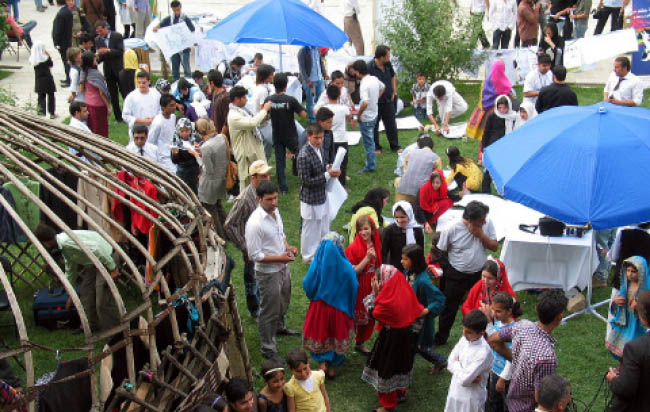Social contract called law, is the product of thoughts of scholars and the symbol of cultural capacity ruling social relations in a society. Communities have reached certain social welfare, economic stability and mental tranquility under the aegis of modern science. No development occurs in a society unless its mental prerequisites and conditions are provided. Afghanistan, however, is among the countries beset by not only dire economic poverty but also intellectual poverty. In Afghanistan there is no such thing as production of thought. It lacks the culture of study and the rate of publishing books will go no more beyond ten per month. In Kabul, where more than 6 million people are estimated to live, the publication of its most prestigious newspapers is no more than 6,000. Educational capacity is extremely limited in this country and lack of educational sources and modern mechanism failed to bring social evolution in Afghanistan. In addition, intellectual poverty hampered the progress of verbal literature and restricted the realm of words which toughen conveying the true message. One of the reasons behind violence will lie in restriction of words; i.e., when there is lack of logical words, violence resurfaces. To sum up, intellectual poverty is likely to be the deciding factor which impedes the development of collective wisdom. That is why, the process of socialization could not go beyond ethnic borders in Afghanistan or change into hotbed of human superiority.
Sentiment or discrimination in its radical frame is a tragic and destructive issue which prevails in Afghanistan in one way or another. Ethnic and religious sentiment is widespread which led to hatred and pessimism hampering social and cultural integration. Such sentiment can be called a chronicle and infectious disease which will pass from one person to the next and ultimately stagnate social development. It is also a great obstacle before progress for restricting people in tribal and ethnic structure.
Based on aforementioned facts, the challenges before the process of socialization in Afghanistan narrowed the sense of tolerance and coexistence. This issue will lead to reproducing discriminated and biased generation who will hand down this character to next generation. This way, the mechanism of socialization will remain intact. Although accessibility and extension of means of communication have connected the world and affected socialization in our time, yet the process of socialization in our country has not met a serious change and did not transcend ethnic structure.
Now the question is that what is the solution to this challenge? The educational process in Afghanistan has many deficiencies. The poor, outdated and inefficient content of the curriculum along with its non-standard form and inappropriate material for this process has stagnated the cycle of producing knowledge. Therefore, the fundamentals of people’s lives and the intellectual and behavioral patterns of political system have experienced no change. It should be noted that a community’s cultural and intellectual capacity is directly dependent on the capacity and efficiency of educational system. Hence, to pass this process, the content of curriculum should be revised for bolstering the talent of the younger generation. That is to say, the content of the syllabus should be enriched so that the cycle of production of thought starts moving and the society gets rid of intellectual poverty.
Second, Understanding and learning human rights doctrines have become an urgent need for human society. Realizing the principles and foundations of human rights will not only promote the knowledge of citizenship and rights but also facilitates understanding the boundaries of our attitude towards others. Despite the fact that more than a decade has passed from the activities carried out by Human Rights Independent Commission in Afghanistan, human rights have remained unknown in this country. Since the doctrines of human rights are the element of democracy, acquiring them will pave the ground for understating the true sense of democracy and reduce violence. Thus, it will be highly beneficial if human rights doctrines be included in school text books rather than being restricted in the realm of political slogans.
Third, the media are appropriate means of conveying thoughts and mentalities. The messages of media will be effective if their contents are in accordance with people’s knowledge and state of minds. Ill-fatedly, the media in Afghanistan is highly poor. To view the content of Afghanistan’s media, one can measure the cultural capacity and collective wisdom of Afghan people. Since media are called soft power, they should be able to change public perspective. It is said that using systematic preaches and advertisement will make people imagine the hell as heaven and vice versa. It indicates that how preaches will be able to portray the facts in different colors. Hence, systemizing and organizing the media programs are one of the highly effective a dynamic approaches for changing the views of a society, mainly of children. It will further reduce tension, promote moral standards and widen the horizon of people to put aside the differences and embrace tolerance and coexistence.
Home » Opinion » Afghanistan and the Challenges of Socialization
Afghanistan and the Challenges of Socialization
| Hadi Miran

